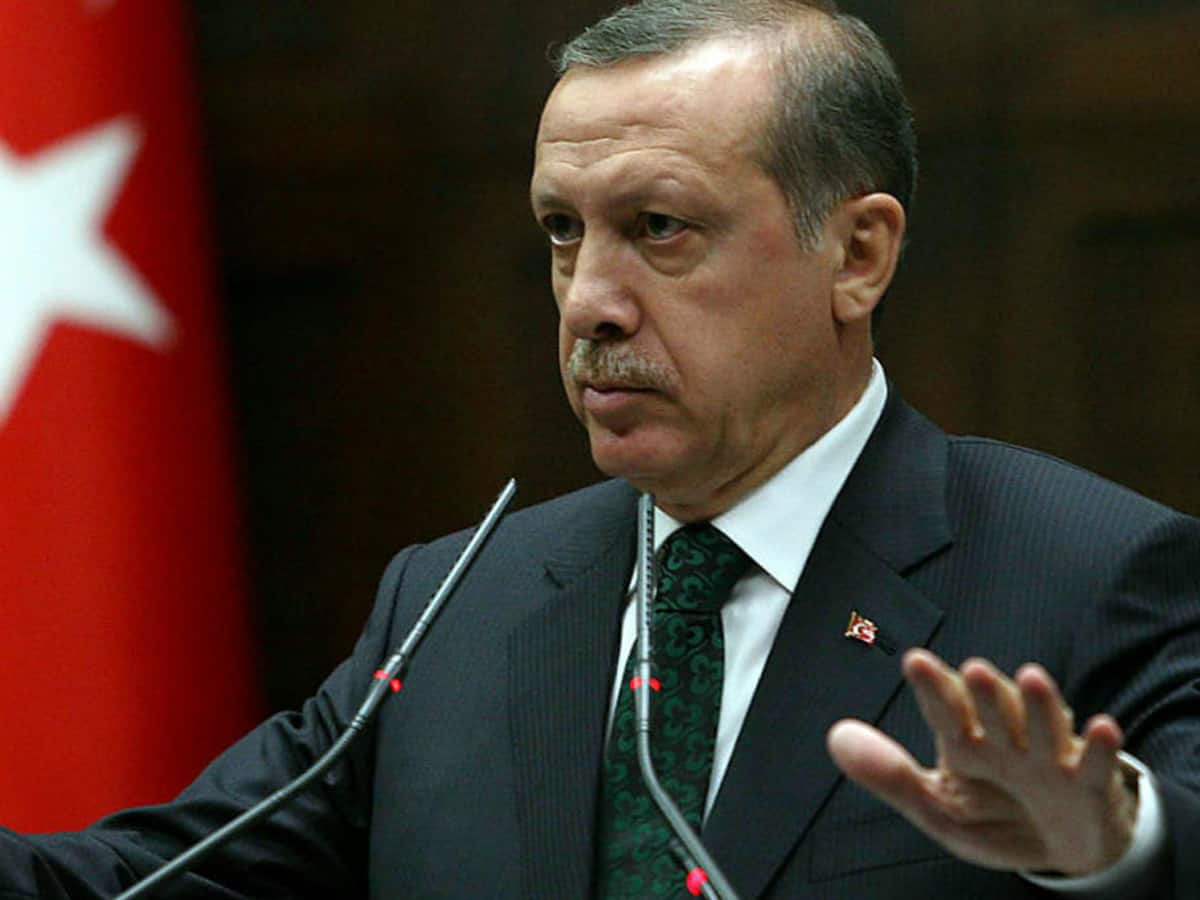Nicosia: The past week must have been one of the worst for Turkey’s arrogant President Recep Tayyip Erdogan as both the US and the EU, showing their frustration with his numerous unsavoury actions, decided to impose sanctions on Turkey.
This week the US Congress is expected to approve sanctions against Turkey for the purchase from Russia of the S-400 system worth USD 2.5 billion and this time President Donald Trump is not expected to oppose the sanctions, as he has been doing since 2017, when the Countering America’s Adversaries Through Sanctions (Caatsa) act was passed, with an overwhelming majority in both houses of the Congress.
According to Reuters News Agency, the measures would target both the Head of Turkey’s Defence Industries Ismail Demir and the Industries themselves, making them unable to fulfill some orders for advanced weapons to be sold to other countries.
Although Ankara insists that the ground-to-air S-400 defence systems would not be integrated into the NATO systems and pose no threat, US Ambassador to NATO Kay Bailey Hutchison, speaking at a recent ministerial meeting of the Alliance said: “The idea that you can put a Russian-made missile defense system in the middle of our alliance is out of bounds… We hope that before Turkey turns on that missile defense system that they understand the consequences and how much it will hurt the Alliance inter-operability with the rest of us.”
Reacting to the news about the US sanctions, President Erdogan said that the sanctions were disrespectful to an important ally in NATO and added that Turkey would be patient to see what trend emerges after the new US administration takes office next month.
For its part, the European Union Council last week, following heated discussions, decided to impose sanctions on Turkish officials and entities involved in gas drillings in the EEZ of Cyprus and Greece and but deferred the imposition of an arms embargos and tariffs after discussions with NATO and the US.
A statement issued by EU leaders drew attention to the general discontent in Europe over Turkey’s recent global posture, saying it had “engaged in unilateral actions and provocations and escalated its rhetoric against the EU”.
In a video message to a workshop on Eastern Mediterranean,Erdogan referred to the EU sanctions, saying that “The European Union should get rid of its strategic blindness and not let itself be manipulated by either the Greek Cypriots or Greece itself in the Eastern Mediterranean.”
It should be noted that by themselves the EU sanctions are quite mild. But taken together with the US sanctions, they put added pressure on the Turkish economy as they scare potential foreign investors who would create jobs, replenish Ankara’s badly depleted cash reserves, and ease debt and inflation burdens. The Turkish lira, which this year lost 25%, fell by 1.5 percent on reports of the impending sanctions.
One explanation of the reluctance of EU leaders, despite Erdogan’s continuous provocations, to impose tough sanctions is that Europe’s financial institutions fear a possible collapse of the Turkish economy.
German newspaper Die Welt wrote that Spanish financial institutions’ exposure to a Turkish collapse was USD 62 billion. That exposure is USD 29 billion for French banks, USD 12 billion for British banks, $11 billion for German banks and USD 8.7 billion for Italian banks.
That means lenders from five EU countries are vulnerable to a combined USD 122.7 billion loss.
The fact that President Donald Trump this time did not stop the congressional sanctions, as he had been doing for the last three years, maybe attributed to his desire to create as many problems as possible to President-elect Joe Biden, who will inherit another mess.
Biden has not hidden his distaste for “autocrat” Erdogan and stressed that”he has to pay a price” for his attitude towards the Kurds and the problems he has created by his actions in various countries.
At the same time, however, Biden wants Turkey to come back to the fold of the West and stop Erdogan from cooperating more closely with Russia.
Aaron Stein, director of research at the Foreign Policy Research Institute in the US, says that it is unlikely that Ankara would reverse its actions in regard to the S-400 and adds: “The Biden Administration is going to have to make a case for Turkey with a very angry Congress. Ankara would have to be willing to compromise, but thus far, we have seen no evidence that they are willing to do much.”
The forthcoming US sanctions, combined with tougher European Union sanctions to be taken next spring, especially if President-elect Joe Biden coordinates US actions with those of the Europeans, could badly harm Erdogan where he is most vulnerable, i.e. the state of Turkey’s economy. Then Erdogan, in the face of public discontent for his oppressive behaviour towards his opponents and the mismanagement of the economy can ill afford to be so defiant of the West.
US Democratic Senator Chris Van Hollen said in an interview: “The incoming Biden Administration will be an important check on Erdogan’s efforts to expand his influence at our expense, in a way that undermines our interests. It is a bid of crossroads for Erdogan.
He’s is going to have to make a decision -is he going to be the faithful NATO ally, or is he going to go alone in the region?”

